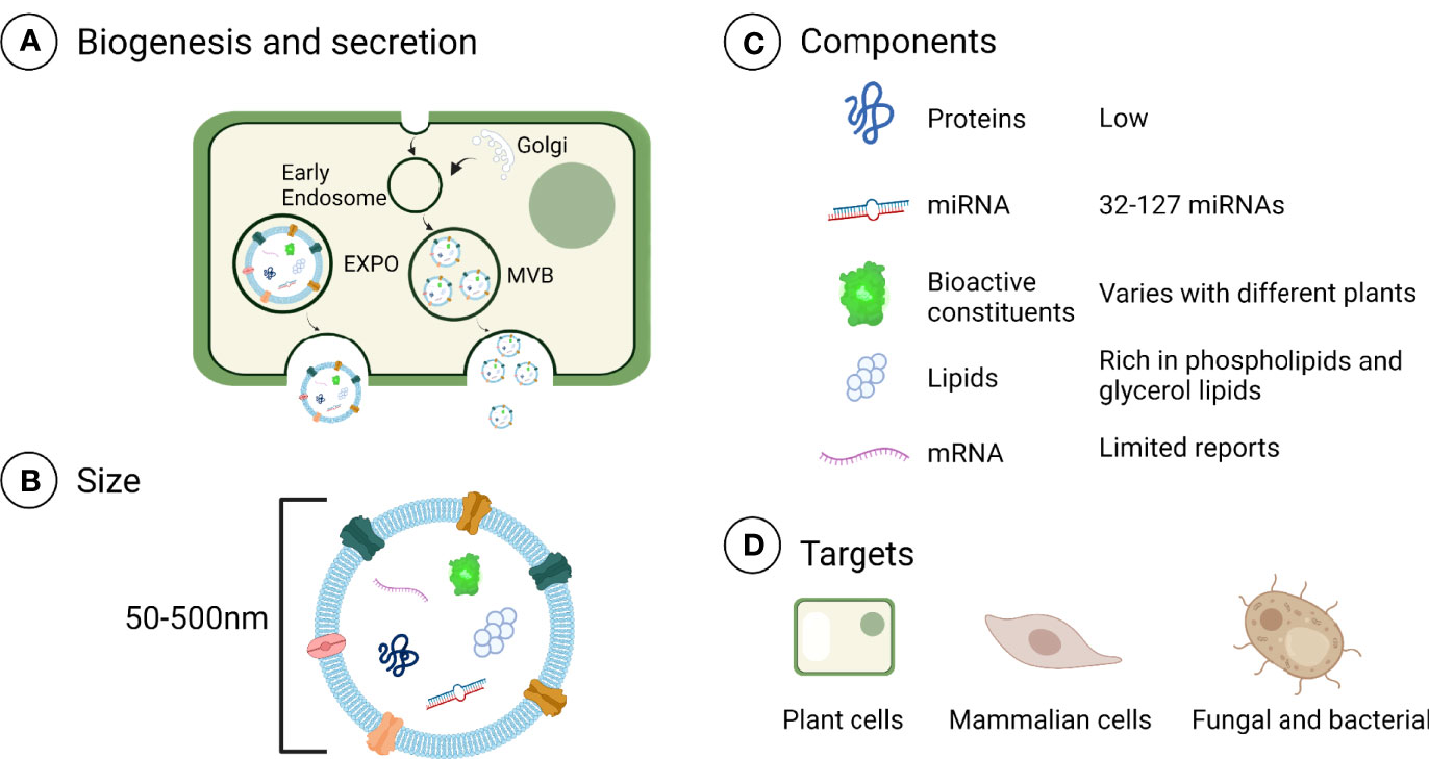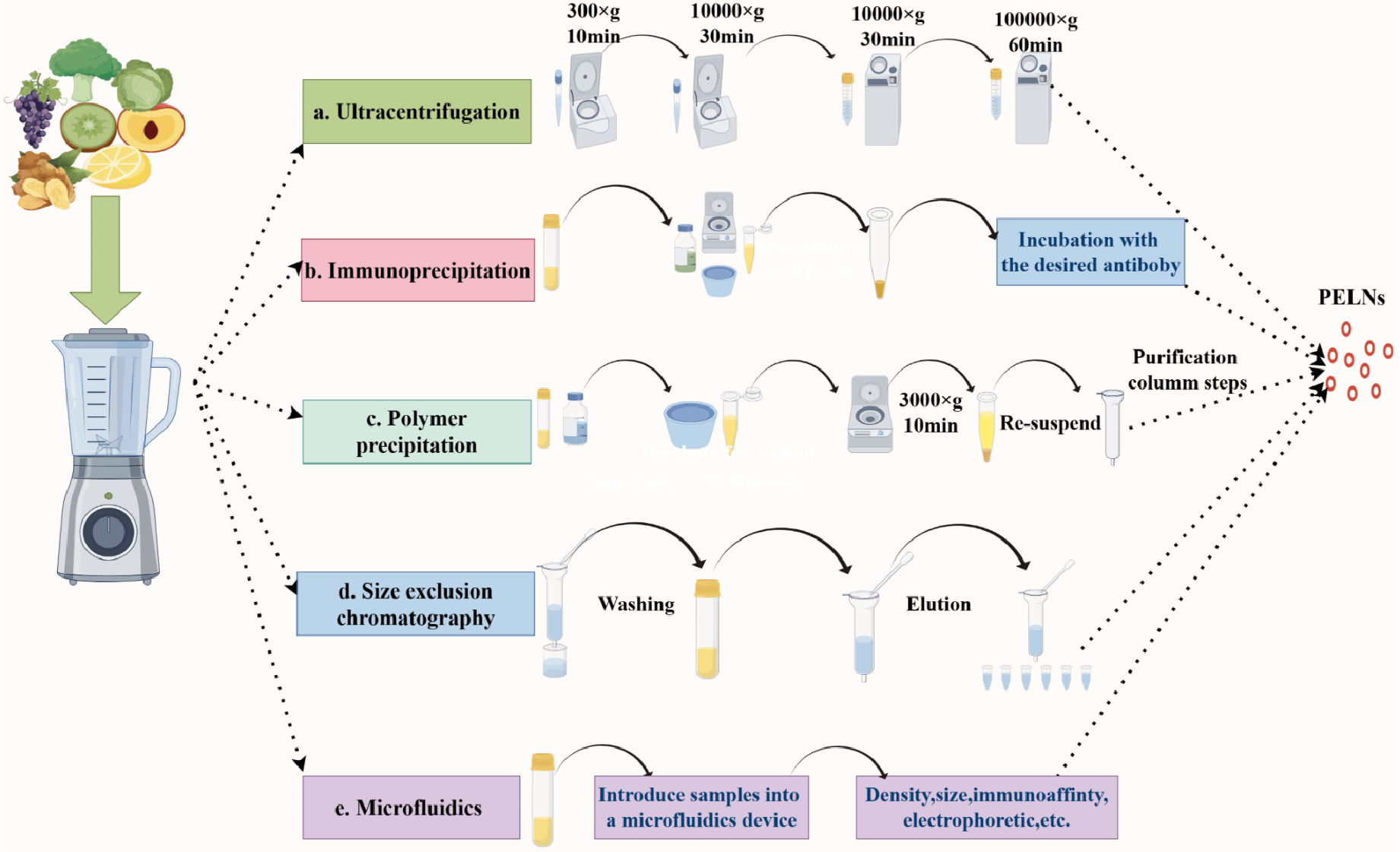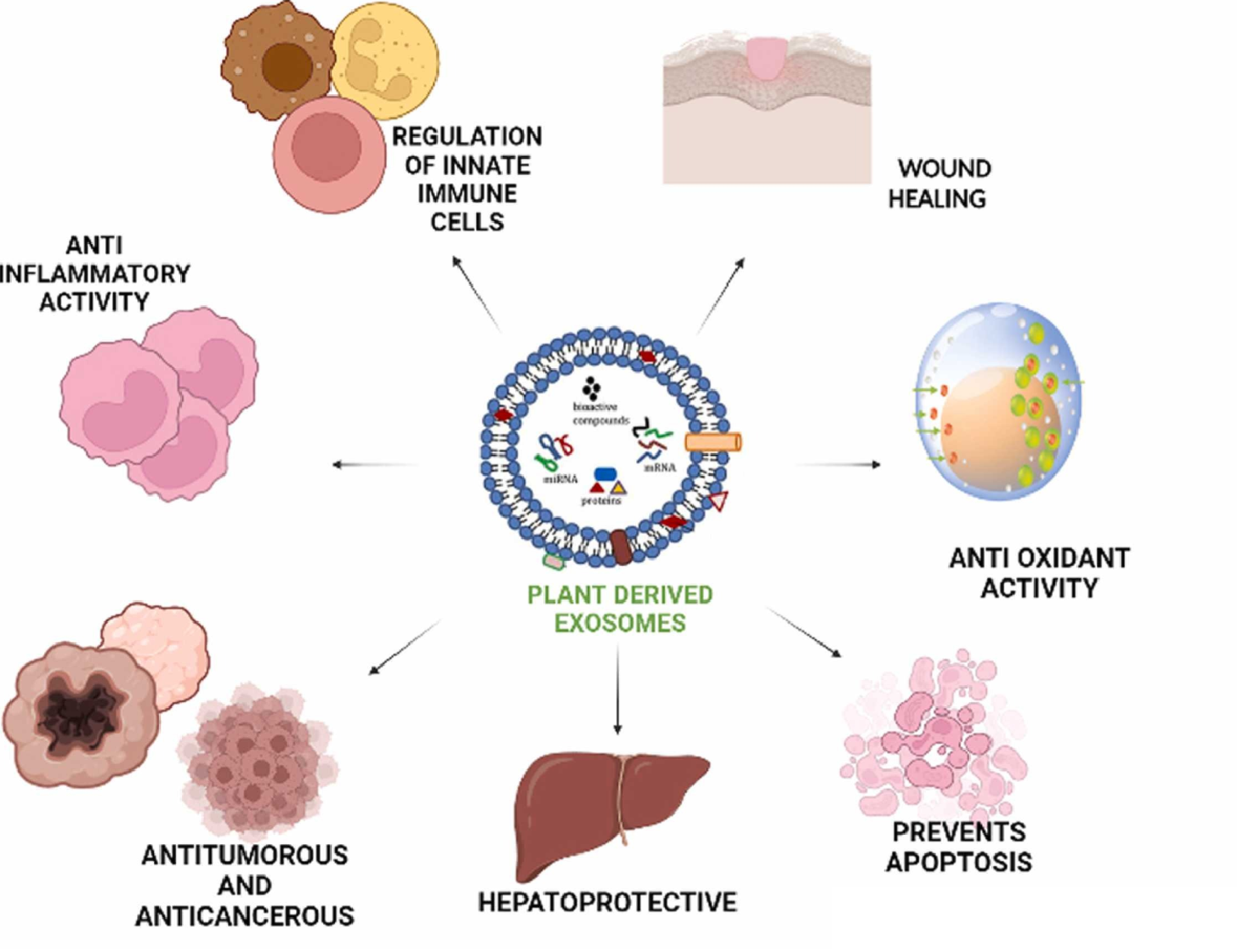Plant-derived Exosome Isolation and Development Service
- Cellular Uptake Study: Examines cellular internalization.
- Migration Assay: Assesses cell movement.
- Wound Healing Assay: Evaluates regenerative potential.
Plant-derived Exosome Isolation and Development Service is a specialized solution designed to efficiently isolate, characterize, and engineer plant-derived exosomes for diverse research and industrial applications. MtoZ Biolabs provides a comprehensive Plant-derived Exosome Isolation and Development Service that enables researchers to harness the full potential of plant-derived exosomes in fields such as drug delivery, bioactive compound transport, and functional food development.
Exosomes are nanoscale extracellular vesicles secreted by cells that play a crucial role in intercellular communication by transporting proteins, lipids, and nucleic acids. In recent years, plant-derived exosomes have garnered significant attention due to their inherent biocompatibility, low immunogenicity, and biodegradability, making them promising candidates for various biomedical applications. Unlike mammalian exosomes, which may raise safety concerns related to immune responses and ethical considerations, plant-derived exosomes provide a natural and safe alternative, particularly for drug delivery, gene therapy, and immune modulation.
However, the isolation and functional development of plant-derived exosomes present unique challenges due to their diverse sources, such as pericarp, pulp, leaf, stems, seeds, and roots. Different plant matrices vary in composition, viscosity, and biomolecular content, which can affect separation efficiency and exosome yield. Therefore, optimizing isolation techniques for each source is essential to ensure high-purity exosome recovery. Additionally, plant-derived exosomes have a complex molecular composition, requiring detailed characterization of proteins, lipids, and RNA to fully understand their biological functions. Their biomedical applications often necessitate precise engineering strategies, such as surface modification, cargo loading, or structural optimization, to enhance stability, bioavailability, and delivery efficiency.

Figure 1. Overview of Plant-derived Exosomes
Service at MtoZ Biolabs
To address these challenges, MtoZ Biolabs provides a range of plant-derived exosome isolation methods tailored for different plants, including differential centrifugation, density gradient centrifugation, ultrafiltration, polymer precipitation, immunoaffinity isolation, separation screening, and size-exclusion chromatography (SEC). These advanced approaches ensure high-purity exosome isolation, efficient biomolecule retention, and application-specific customization. Furthermore, our platform offers comprehensive exosome characterization and engineering services, enabling clients to explore the full potential of plant-derived exosomes for scientific and commercial applications. If you are interested in our Plant-derived Exosome Isolation and Development Service, please feel free to contact us. Our technical specialists are available to provide a free business assessment.

Sha, A. et al. Int J Mol Sci. 2024.
Figure 2. Isolation Techniques for Plant-derived Exosome
Analysis Workflow
1. Exosome Isolation and Characterization
1️⃣Plant Sample Preparation: Pre-treated samples from customers or selected plant sources.
2️⃣Plant Exosome Isolation: Filtration, concentration, and ultracentrifugation for high-purity extraction.
3️⃣Plant Exosome Characterization: NTA and TEM for particle size and morphology.
4️⃣Cell Assays:
2. Quality Control
1️⃣Mycoplasma Test: PCR detection for contamination.
2️⃣Sterility & Microbial Testing: PCR and sequencing for bacteria and fungi.
3️⃣Endotoxin Testing & Removal: LAL assay and purification to perform endotoxin removal.
3. In Vivo Functional Validation
1️⃣Animal Model: Rat skin wound model.
2️⃣Exosome Administration: Topical or systemic application.
3️⃣Wound Healing Assessment: Tissue repair, inflammation modulation, neovascularization.
4️⃣Histology & Pathology: H&E staining and routine pathological evaluation.
Service Advantages
✅Diverse Isolation Methods: MtoZ Biolabs offers ultracentrifugation, precipitation, SEC, density gradient centrifugation, and immunoaffinity capture, ensuring high-purity plant-derived exosome isolation.
✅Tailored Solutions: Customizable Plant-derived Exosome Isolation and Development Service for drug delivery, diagnostics, and research to meet specific project needs.
✅High-Purity & Integrity: Advanced techniques preserve plant-derived exosome structure and bioactivity, optimizing functional performance.
✅Strict Quality Control: Comprehensive testing for purity, sterility, and endotoxin levels to ensure safety and consistency.
Applications

Subha, D. et al. Plant Nano Biology. 2023.
Figure 3. Schematic Representation of Different Therapeutic Potential of Plant-derived Exosomes
1. Drug Delivery
Plant-derived exosomes serve as biocompatible nanocarriers for targeted drug delivery, enhancing stability, bioavailability, and cellular uptake of therapeutic compounds.
2. Regenerative Medicine
Plant-derived exosomes promote wound healing, tissue repair, and cell regeneration, offering potential applications in regenerative therapies and skin recovery.
3. Diagnostics & Biomarkers
Plant-derived Exosome Isolation and Development Service enables the discovery of non-invasive biomarkers for disease detection, advancing diagnostic research and precision medicine.
4. Cosmetics & Skincare
Plant-derived exosome development supports anti-aging, skin hydration, and repair applications, improving cosmetic formulations with natural bioactive delivery.
5. Agriculture & Plant Science
Plant-derived exosome isolation and development services contribute to plant stress resistance, growth regulation, and nutrient transport research, supporting sustainable agriculture.
FAQ
Q: What plant sources do you use for exosome isolation?
We isolate exosomes from a wide range of plant sources, including fruits, vegetables, herbs, medicinal plants, and plant cell cultures. Our expertise allows us to optimize isolation protocols based on the specific plant matrix, ensuring high-purity exosome yield suitable for applications in drug delivery, diagnostics, and regenerative medicine. We also accommodate custom plant selections based on research and development needs.
How to order?







